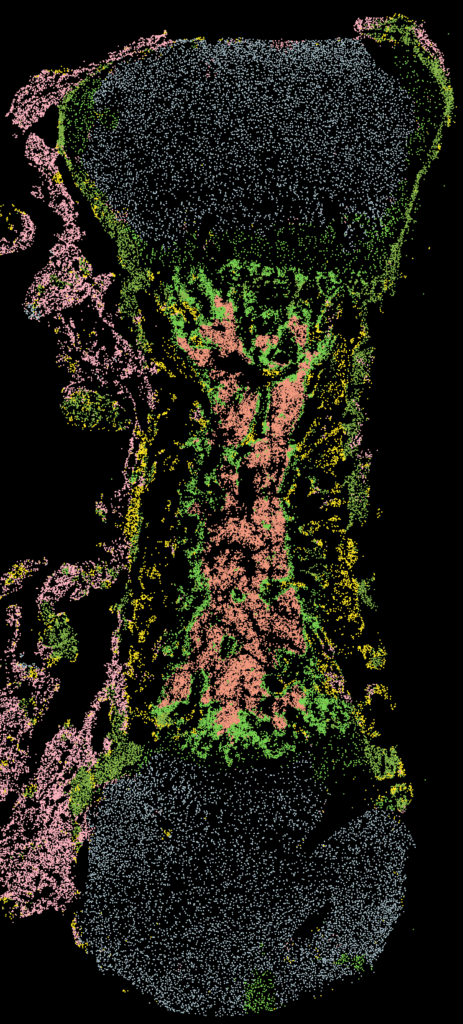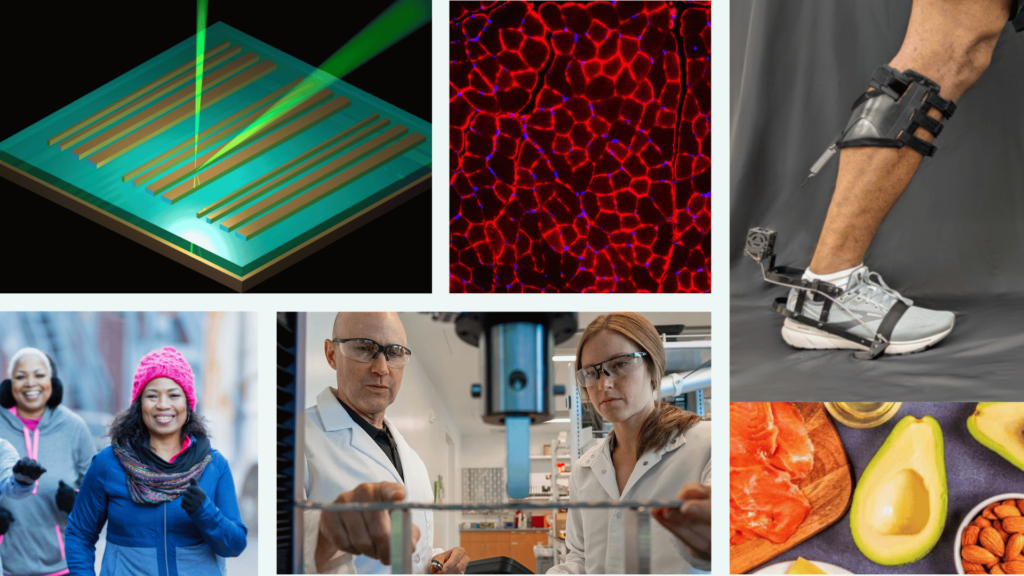Suppressed immune response linked to failed bone healing
Collaborators

If all goes as envisioned, research done at the University of Oregon could one day lead to a blood test to guide treatment for musculoskeletal injuries.
A team led by Robert Guldberg of the University of Oregon’s Phil and Penny Knight Campus for Accelerating Scientific Impact and director of the Wu Tsai Human Performance Alliance at Oregon, reported that measurements of specific immune cells and proteins circulating in the blood immediately following trauma can be combined with advanced data analytics to predict whether injuries will successfully respond to treatment. The findings were published earlier this year in the Proceedings of the National Academy of Sciences.
In the research, the team measured the blood-based protein and immune cell biomarkers in a rat model previously created to mimic chronic femoral bone-healing failure similar to that seen in human trauma cases.
“Our immune systems are very personalized,” said Guldberg, the Robert and Leona DeArmond Executive Director of the Knight Campus. “The identification of these dysregulated immune response profiles associated with poor healing may allow physicians to reliably predict patient outcomes and potentially open new treatment strategies.”
Guldberg was principal investigator on the project, which was supported by the U.S. Armed Forces Institute of Regenerative Medicine and NIH and done in a collaboration with researchers at Georgia Tech and Evolved Analytics.
In a series of experiments, Guldberg and colleagues ran thousands of data models on hundreds of biomarkers. They identified elevated levels of myeloid-derived suppressor cells and the immunosuppressive protein interleukin-10 as the strongest predictors of delayed and less-effective bone regeneration.
“Our studies showed that myeloid-derived suppressor cells were consistently elevated in the blood as well as the local tissue in the nonresponders to treatment, suggesting that suppression of the immune system may negatively affect musculoskeletal healing,” Guldberg said. “Our current work focuses on extending these biomarker studies to common sports-related injuries and developing novel treatment strategies to regulate the immune response to injury and improve healing outcomes.”
Latest News

May 29, 2025
Is exercise before sleep linked with poorer sleep?

May 23, 2025
Skeletal stem cells key to stronger bones, better healing

March 13, 2025
Wu Tsai Human Performance Alliance Research Round-Up – March 2025
Get Engaged
Join our mailing list to receive the latest information and updates on the Wu Tsai Human Performance Alliance.
